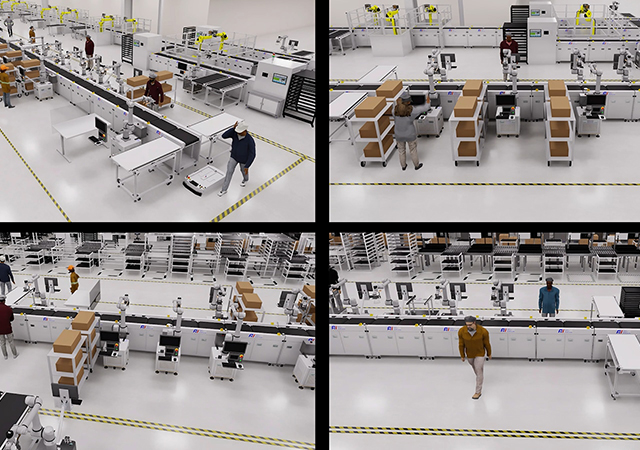
 Ziad Al Bawaliz
Ziad Al Bawaliz
The industrial sector plays a pivotal role in addressing climate change, producing essential goods like critical minerals, electric vehicles, and sustainable building materials that are vital for a green transition. By leveraging existing innovative solutions and technologies, the industry can transform this pressing challenge into a significant growth opportunity.
A recent Danfoss Impact paper emphasises that "competitive decarbonisation" is crucial for enhancing market competitiveness, allowing industries to minimise their environmental impact while improving their competitive position.
Ziad Al Bawaliz, Regional President at Danfoss Türkiye, Middle East and Africa, notes that the paper discusses readily available products and solutions that can be implemented in the MENA region to reduce energy waste, promote electrification, and enhance competitiveness, especially in energy-intensive sectors. Electric motors, which drive essential industrial technologies like fans, pumps, and conveyors, account for over two-thirds of industrial electricity consumption. Optimising motor efficiency in the EU alone could save between €9.5 billion and €10.7 billion annually, while preventing 12.5 million to 14.1 million tons of CO2 emissions—equivalent to the yearly carbon footprint of about two million Europeans.
In the EU, electricity constitutes only about one-third of the energy mix, yet industries must prioritise electrification to avoid overloading an already strained energy grid. The paper advocates for the Electrification Action Plan to set clear targets for demand-side electrification.
Danfoss President and CEO Kim Fausing expresses optimism about Europe’s future but stresses the need to rekindle a growth mindset. He highlights the findings of Mario Draghi’s report on EU competitiveness, which identifies areas for improvement, including addressing rising energy costs. By reducing energy consumption, cutting emissions, and implementing efficient electrification solutions, European industry could seise a significant growth opportunity.
The Danfoss Impact paper also provides a roadmap for immediate action to reduce energy waste and enhance competitiveness in energy-intensive industries. Fausing emphasises that decarbonisation should not be viewed as a hindrance to productivity; rather, it is essential for increasing resilience and economic competitiveness.
Implementing energy efficiency and decarbonisation measures can significantly lower energy bills while boosting gross value added in manufacturing. These cost-effective strategies will prepare the industry for deeper electrification and release crucial funds for R&D and innovation—areas where Europe is currently lagging.
This focus on reducing energy consumption is vital for maintaining and even increasing industrial output. Many energy-intensive processes, particularly those involving heat generation from fossil fuel combustion, can benefit from electrification.
Heat pumps represent a key solution for decarbonising industrial heat. Utilising heat pumps for industrial processes in the EU could reduce CO2 emissions by 146 million tons, which is roughly 22% of Germany’s net CO2 emissions in 2021.
Fausing states, "To enhance competitiveness, we must consider practical solutions that save energy and reduce costs." A pilot project at Danfoss’s production facilities in Slovenia demonstrated that 80% of machines could be turned off when not in use without affecting productivity, leading to a 30% reduction in energy consumption. This could result in annual savings of €3 million to €5 million for Danfoss, funds that could be redirected to R&D.
Such straightforward yet effective approaches require a shift in mindset. Fausing urges all industrial companies to explore similar decarbonisation strategies as a means to enhance competitiveness.


